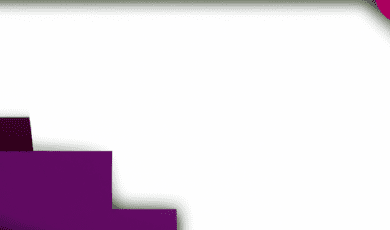
How Document Translation Services Help UK NGOs Succeed in Multilingual African Regions
By Joëlle Esso
Introduction: Bridging Languages for Impact
In the diverse linguistic tapestry of Africa, language has the power to unite or divide. When UK-based NGOs expand their operations into African countries, they encounter a rich and complex multitude of languages and dialects. Effective communication becomes crucial—not only for project success, but also for building trust with local communities and stakeholders. Document translation services emerge as a vital bridge. They are the unsung heroes enabling NGOs to break barriers and achieve their missions across the continent.
This article explores how UK NGOs benefit from high-quality translation services, ensuring their projects resonate in multilingual African contexts. Drawing from my journey as a Cameroonian artist and observer of contemporary Africa, we'll examine both practical uses and deeper socio-cultural impacts of translation—a key pillar for sustainable development and inclusive growth.
The Multilingual Landscape of Africa
Africa is home to over 2,000 languages, making it the world’s most linguistically diverse continent. Countries like Nigeria, Cameroon, and South Africa each have dozens of official and widely spoken tongues. While many urban Africans are bilingual or multilingual, rural populations often rely on indigenous languages to communicate essential daily needs, health information, and economic opportunities.
For translation—the process of conveying meaning across different languages—to truly work in Africa, it must account for regional variations, local idioms, and social nuances. That’s why when UK NGOs step into African communities, relying only on English or French is simply not enough.
Challenges Faced by UK NGOs in Africa
UK NGOs working across the continent quickly discover that linguistic hurdles can jeopardize even the best-intentioned projects. Here are some typical challenges:
- Misinformation: Translated health guidelines or educational materials, if not accurate, may lose their intended meaning, leading to confusion or distrust.
- Legal and Policy Barriers: Regulatory documents must be submitted in official languages; failure to provide certified translations can block project registration or funding.
- Loss of Community Trust: Communities often feel excluded when messages are not delivered in their mother tongues, impacting project acceptance and participation.
- Operational Delays: Incomplete or poor translations can stall collaboration between field teams, local partners, and authorities.
In short, language gaps threaten operational efficiency and, more importantly, the relationship between NGOs and the communities they serve.
Document Translation Services: Unlocking Success for UK NGOs
To overcome these challenges, document translation services have become indispensable. These solutions go beyond simple word-for-word conversion: they are about conveying intent, emotion, and knowledge in a culturally sensitive manner.
Here are the key ways translation services support UK NGOs in Africa:
- Ensuring Legal and Regulatory Compliance
NGOs must often submit officially translated documents—project proposals, contracts, memoranda of understanding, and reports—to local governments or funding bodies. Reputable agencies offer certified translation services UK, which guarantee accuracy, authenticity, and adherence to each country’s legal standards. - Enhancing Community Trust and Engagement
When information is delivered in a language and register that resonates with local communities, it fosters connection and respect. From health campaign leaflets translated into Fulani, to entrepreneurship guides rendered in Swahili, these efforts ensure that messages are understood—and embraced—by those who matter most. - Facilitating Training and Capacity-Building
NGOs frequently hire and train local teams. Translating training manuals, safety protocols, and educational resources reduces misunderstandings and empowers staff with knowledge they can reliably act upon. - Supporting Monitoring, Evaluation, and Learning
Accurate translation of surveys, feedback forms, and interviews allows NGOs to collect data in multiple languages, analyze results effectively, and adapt strategies to local realities.
Partnering with an established agency like PoliLingua, for example, gives NGOs access to native-speaking linguists who understand both the languages and the intricate cultures of African regions.
How Certified Translation Services Differ—and Why They Matter
Not all translations are created equal. NGOs entrusted with sensitive or official projects must ensure that their translated documents are legally recognized. That’s where certified translation services UK come in.
- Certification ensures that every translated document is accompanied by a signed statement from an accredited translator, attesting to its completeness and accuracy.
- Recognition by courts, embassies, and government offices, which often accept only certified translations for permits, visa applications, or legal proceedings.
- Confidentiality for sensitive documents, including medical records, contracts, and financial paperwork.
By investing in certified translation, UK NGOs can operate in African jurisdictions with confidence, ensuring their vital paperwork is never rejected due to language issues.
Case Study: Empowering Change through Multilingual Communication
Take, for example, a hypothetical UK NGO—Health4Hope—launching a vaccination awareness campaign in Cameroon, where over 270 languages are spoken. The organisation’s initial English and French materials fail to gain traction in rural communities. By collaborating with professional document translation services, Health4Hope adapts its brochures, radio scripts, and training sessions into local languages such as Ewondo and Fulfulde.
Participation rates soar. Community leaders and health workers feel respected and involved. Data collection improves as surveys are understood deeply and answered honestly. The campaign’s success, amplified by inclusive translation, demonstrates the transformative power of language.
For a glimpse into real-world challenges and triumphs of African language diversity, watch this eye-opening documentary on multilingual Africa.
Socio-Cultural and Economic Implications
Beyond logistics, using translation services signals respect for Africa’s cultural heritage. It affirms identity and belonging. Moreover, empowering local linguists and translators creates jobs and supports the continental goal of African-led development.
Language can also be a catalyst for inclusivity in the diaspora. When African communities abroad see NGOs operating in their mother tongues, they are more likely to engage, contribute, and share expertise, sustaining projects from London to Lagos, Douala, and Nairobi.
Conclusion: Investing in Language for Lasting Impact
The story of African development is written in many languages. For UK NGOs, investing in reliable document translation services is not just a tool—it’s a philosophy. By honoring linguistic diversity, NGOs strengthen their position as partners, not outsiders, and set the foundation for sustainable, inclusive, and truly transformative change.
Ultimately, the future belongs to organizations that see language not as a hurdle, but as a powerful resource. For UK NGOs, harnessing certified translation services UK is an investment in relevance, relationships, and resilient impact across Africa’s vibrant multilingual regions.
Interested in learning more? Visit PoliLingua for tailored language solutions—or dive deeper into the history and complexity of translation here.







